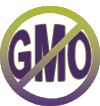'Frankenfoods' Giant Monsanto Plays Bully Over Consumer Labeling
By Scott Thill
AlterNet
March 6, 2008
"There are some corporations that clearly are operating at a level that are disastrous for the general public . . . And in fact I suppose one could argue that in many respects a corporation of that sort is the prototypical psychopath, at the corporate level instead of the individual level." --Dr. Robert Hare, The Corporation
Since 1901, Monsanto has brought us Agent Orange, PCBs, Terminator seeds and recombined milk, among other infamous products. But it's currently obsessed with the milk, or, more importantly, the milk labels, particularly those that read "rBST-free" or "rBGH-free." It's not the "BST" or "BGH" that bothers them so much; after all, bovine somatrophin, also known as bovine growth hormone, isn't exactly what the company is known for. Which is to say, it's naturally occurring. No, the problem is the "r" denoting "recombined." There's nothing natural about it. In fact, the science is increasingly pointing to the possibility that recombined milk is -- surprise! -- not as good for you as the real thing.
"Consumption of dairy products from cows treated with rbGH raise a number of health issues," explained Michael Hansen, a senior scientist for Consumers Union. "That includes increased antibiotic resistance, due to use of antibiotics to treat mastitis and other health problems, as well as increased levels of IGF-1, which has been linked to a range of cancers."
For its part, Monsanto is leaning on the crutch of terminology to derail the mounting threat to its bottom line: The consumer-driven revolution against recombined food. And so the St. Louis-based agri-chem giant has launched a war of words in the form of a full-court press to suppress the "rBGH-free" label at the state level. And it's sticking to its guns by obfuscating and indulging in cheap semantics.
"RBST is a supplement that helps the cow produce more milk," Monsanto spokesperson Lori Hoag explained to me via email. "It is injected into the cow, not into the milk. There is no way to test because the milk is absolutely the same. Neither the public nor a scientist can tell the difference in the milk because there is not a difference. Consumers absolutely have a right to know if there is a difference in foods they are buying. In this case, there simply is not a difference."
"Monsanto has an unfortunate habit of mixing some things together that confuse the issue," counters Rick North, director of Campaign for Safe Food from Physicians for Social Responsibility's Oregon chapter. "It's true that all cows have natural bovine growth hormone. But only cows injected with recombinant, genetically engineered bovine growth hormone have rBGH. And this isn't a 'supplement.' This is a drug that revs up cow metabolism so high that they're typically burned out after two lactation cycles and slaughtered. Non-rBGH cows typically live four, seven, ten or more years."
The threat of rBGH to cows and humans alike encouraged Canada, Australia and parts of the European Union to ban Monsanto's recombined milk outright. As for the corporation's native United States, it has predictably signed off on another unproven growth opportunity with possibly lethal environmental side effects. They're in it for the money. And so the battle lines on the threat have been drawn, as North takes pains to point out, between "the FDA and those who follow them," and those who don't. "These proposed state bans or restrictions on rBGH-free type of labeling have nothing to do with protecting consumers," he asserts. "They have everything to do with protecting Monsanto's profits."
But that battle over labels and profits hasn't stopped Monsanto from creating its own press at home in the United States, where it infamously got two Fox News journos fired in 1997 for refusing to bend the truth about rBGH on the air. Yet, over the long term, the multinational's attention to press relations hasn't paid off so well. Medical authorities like Samuel Epstein and Robert Hare, quoted above, have targeted them from both the physical and psychological health perspective. Meanwhile, farmers and consumers across the world have demanded labels that differentiate the recombined milk from its naturally occurring counterparts on the store shelves. And they don't think it's too much to ask, given the facts.
Hoag is "accurate" when she argued "that there is no commercial test for this drug," North concedes. "But that's entirely different than saying there is no difference. Monsanto and its front groups have tried to equate the lack of a verifying lab test with the label being false or misleading. This is a non sequitur. There are all kinds of legitimate labels that aren't verified by lab tests, such as state or country of origin labeling, fair trade labeling, bottled water that is labeled as originating from a spring, and so on."
Monsanto, meanwhile, is bedeviling the details to distort the big picture. "Sure, the label can make a claim one way or the other," Hoag admitted, "but there is no way to verify that the claim is true. This is precisely why the labels are misleading. They make consumers believe there is a difference, when in fact there is none."
That sounds simple enough, but consumers don't seem to need or want Monsanto's mothering. In 2007, its efforts at an outright ban on rBGH-free labels in Pennsylvania were almost cleared for takeoff, until the state invited its citizens to publicly comment, which eventually doomed the move. That scenario has replayed itself across the United States in accelerated fashion with success.
"The issue looks pretty dead in Indiana and Ohio, and there are solid victories in Pennsylvania and New Jersey," explains Recipe for America's Jill Richardson, author of the forthcoming book Vegetables of Mass Destruction. "Utah and Kansas are probably going to revise their bills after their hearings, because of opposition."
This opposition comes in spite of Monsanto's funding of so-called grass-roots farming coalitions like the American Farmers for Advancement and Conservation of Technology -- also known as, cleverly enough, AFACT. Monsanto's public relations firm Osborn & Barr built a site for AFACT pro bono, knitting the two organizations together in a way that may not sit well in states currently pondering their own label bans. AFACT's attacks have virally replicated across the nation, as farmers on Monsanto's payroll have taken to harassing their state legislatures in concert with the multinational's usual tactics at the federal level, such as forcing skeptical scientists off advisory panels, intimidating critics and so on.
But the assault has only met equally powerful resistance, as environmental awareness has driven the market into a recombinant-free zone. In the end, this might be Monsanto's last gasp in the fight.
"Monsanto has seen the writing on the wall in terms of consumer rejection of artificial growth hormones," claims National Family Farm Coalition policy analyst Irene Lin. "Consumers are becoming more aware and educated about what goes into their bodies and what their kids are drinking. And this is Monsanto's last-ditch, desperate attempt to maintain its profit. And they are hiding behind dairy farmers to do it."
But for every farmer who toes Monsanto's line, there are as many if not more, and not just in the United States, who are amassing in opposition to the multinational's attempt to change, and then patent, how America grows (and describes) its food. And behind them, in ever larger numbers, are consumers and stores themselves, who are demanding more, not less, information from those who produce the food.
"In the last year or so, some really big names have announced that they will only buy rBGH-free milk," explains Food and Water Watch's assistant director Patty Lovera, "including Chipotle, Starbucks, Tillamook and lots of supermarket house brands, like Kroger, Meiers and Publix. Even Kraft is going to do an rBGH-free line of cheese."
In the end, Monsanto's quibbling over labels has added up -- ironically enough, given all the text it has generated -- to censorship, pure and simple. And, as with past debacles like the aforementioned Agent Orange, PCBs and Terminator seed, they've established a pattern of stopping at nothing to increase not your health but their profits. At your expense.
"Absolutely nothing good could come from a ban on rBGH-free labeling," concludes Hansen. "More information is a good thing, and all these state actions are anti-consumer, restrict free speech and interfere with the smooth functioning of free markets."
Learn more about the ban on rBGH-free labeling and take action.


